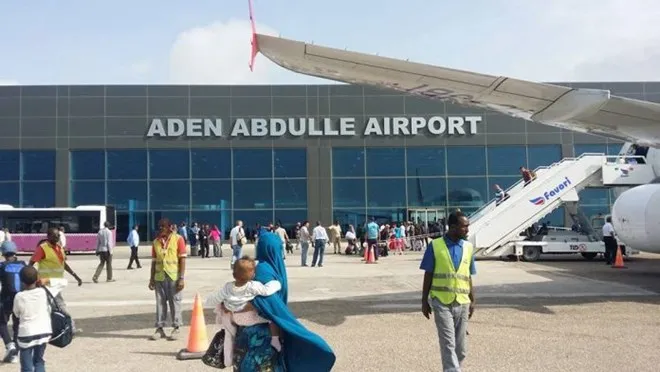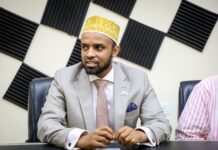Qalin News Network – Somalia Airport Authority, the aviation authority and the national intelligence and security services (NISA) are accused of weaponizing the use of the aviation for political reason, which can drag down the country into new civil war.
Members of the Somalia federal parliament, which were traveling to their constituencies in Southwest State of Somalia were forcefully denied travelling to Baidoa town after security of the airport informed them that they were ordered to deny them for traveling.
On September 19, 2024, security officials at Mogadishu Aden Adde Airport, denied six MPs to travel to Baidoa citing they are not permitted to travel to Baidoa. Among them was MP Saredo Mohamed Abdalle, a lawmaker who has been vocal in her criticism of the federal government’s interference in regional matters. She told the media that the security of the airport denied her from boarding the plane, while she had her boarding pass.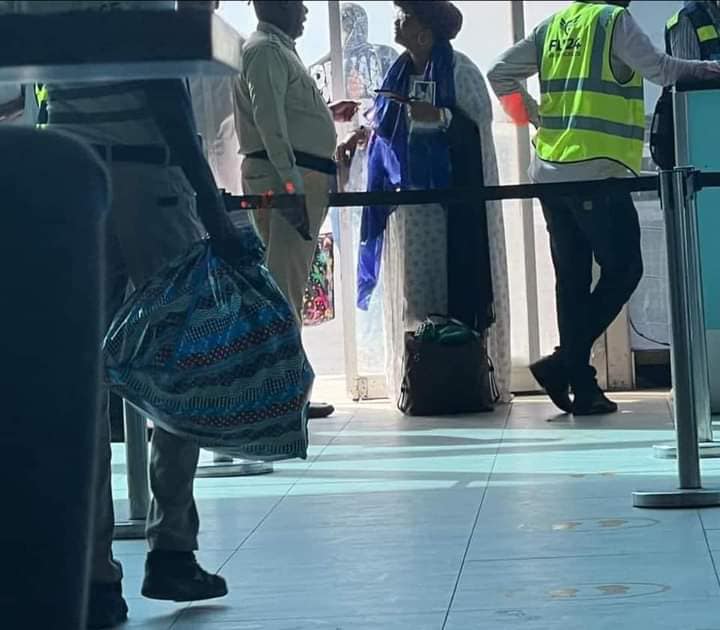
Lawmaker Sadaq Abdullahi Abdi, who was among the 6 MPs denied from traveling accused the Somalia president Hassan Sheikh Mohamud of using the aviation as a tool to oppress the members of the parliament that are not happy with the way he is handling the national matters.
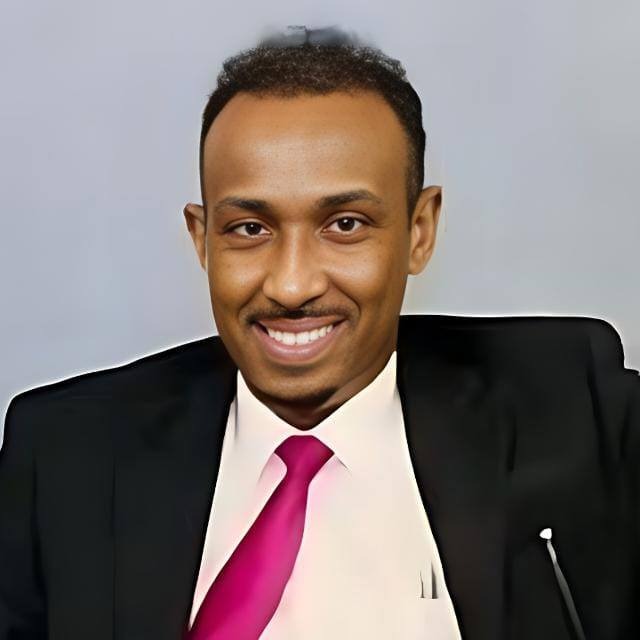
“The president decided to weaponize the aviation, which is a national service that no one can use for political purpose, if he continues weaponizing the national services the Southwest State people and administration will decide their future and the country can fall into another era of civil war” Abdi said.
In a troubling turn of events, Somalia’s airspace control has become a tool of political suppression, wielded by the Somalia’s aviation Authority, the Airport Authority and the Directorate of the Ministry for Aviation and Air Transport, under the guidance and influence of the president of Somalia.
On September 16, 2024, a flight departing from Baidoa to Barawe (both towns in Southwest State) was forced to return to its departure point after the Aviation Authority denied permission for the plane to land at Barawe Airport. The flight carried visiting officials from the Southwest State Administration who have been embroiled in a political conflict with the President of Somalia, Hassan Sheikh Mohamud. The president decided to use the control of the aviation and airspace to suppress the politicians and federal states that have different opinion than his agendas. The decision to deny the flights between Baidoa and Barawe angered the Southwest State Administration and created a widespread condemnation from the public. It was seen as an explicit political maneuver designed to put pressure to opposition voices and prevent key officials from conducting their duties.
The Southwest State Administration was quick to condemn the move, labelling it as “illegal” and calling on the Federal Government of Somalia to stop the abuse of power. “This is a clear violation of aviation norms and an unprecedented attempt to manipulate airspace control for political gain.” The spokesman of the administration said.
The travel restrictions of the members of the parliament, whose constituencies are in Southwest State were escalated to a level that all MPs traveling to Baidoa were denied access to board the planes.
In another alarming incident, Lawmaker, Mohamed Sheikh Abdullahi aka Ciirow was prevented from boarding a flight to Baidoa on September 25, 2024, while he was traveling to attend the funeral of his son who died a day before.
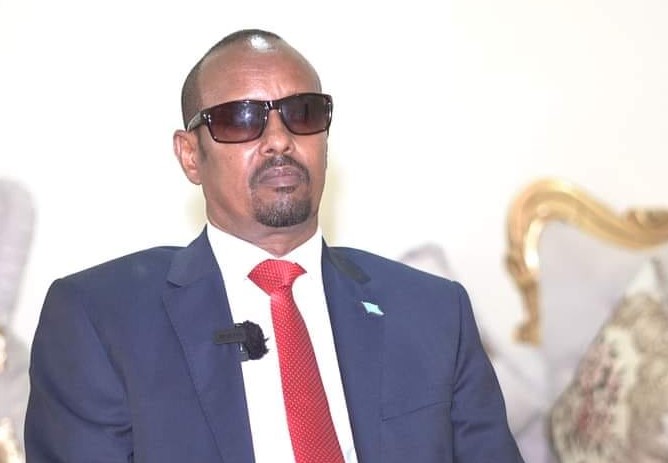
“I was traveling to attend the funeral of my son who died, but I was denied to get boarding pass by some plain clothed officials who called themselves National Security Agency forces” Ciirow said “I am sorry that lawmakers’ immunity is disrespected by those who were supposed to protect and I can confirm that it must have consequences” he added.
Ciirow, who is also a military general, and headed Somalia division 60 Brigade in Southwest State and Gedo region, called the Somalia president to take swift actions against those who targeted the MPs and imposed the travel restrictions.
Such measures not only violate the rights of MPs to carry out their responsibilities but also set a dangerous precedent for the politicization of Somalia’s aviation sector, the freedom to travel and freedom of expression for the MPs whose duties include to have rights to present their views in the parliament.
The tensions and recent blocking of MPs from traveling to Baidoa stems from a deeper political conflict involving the presence of Ethiopian forces in the Bakol region of Somalia. On August 30, 2024, the residents of Huddur town, led by the Governor of Bakol and the Mayor of Huddur, held a large demonstration demanding that Ethiopian forces remain in the region until proper replacement forces are deployed. The Ethiopian troops, mandated by a bilateral agreement with the Somalia government, are the primary security presence in Bakol, responsible for maintaining stability across the entire region.
The protests were sparked by a social media post earlier in the year by Somalia’s National Security Advisor, Hussein Sheikh Ali, who announced that Ethiopian forces would withdraw by the end of December 2024.
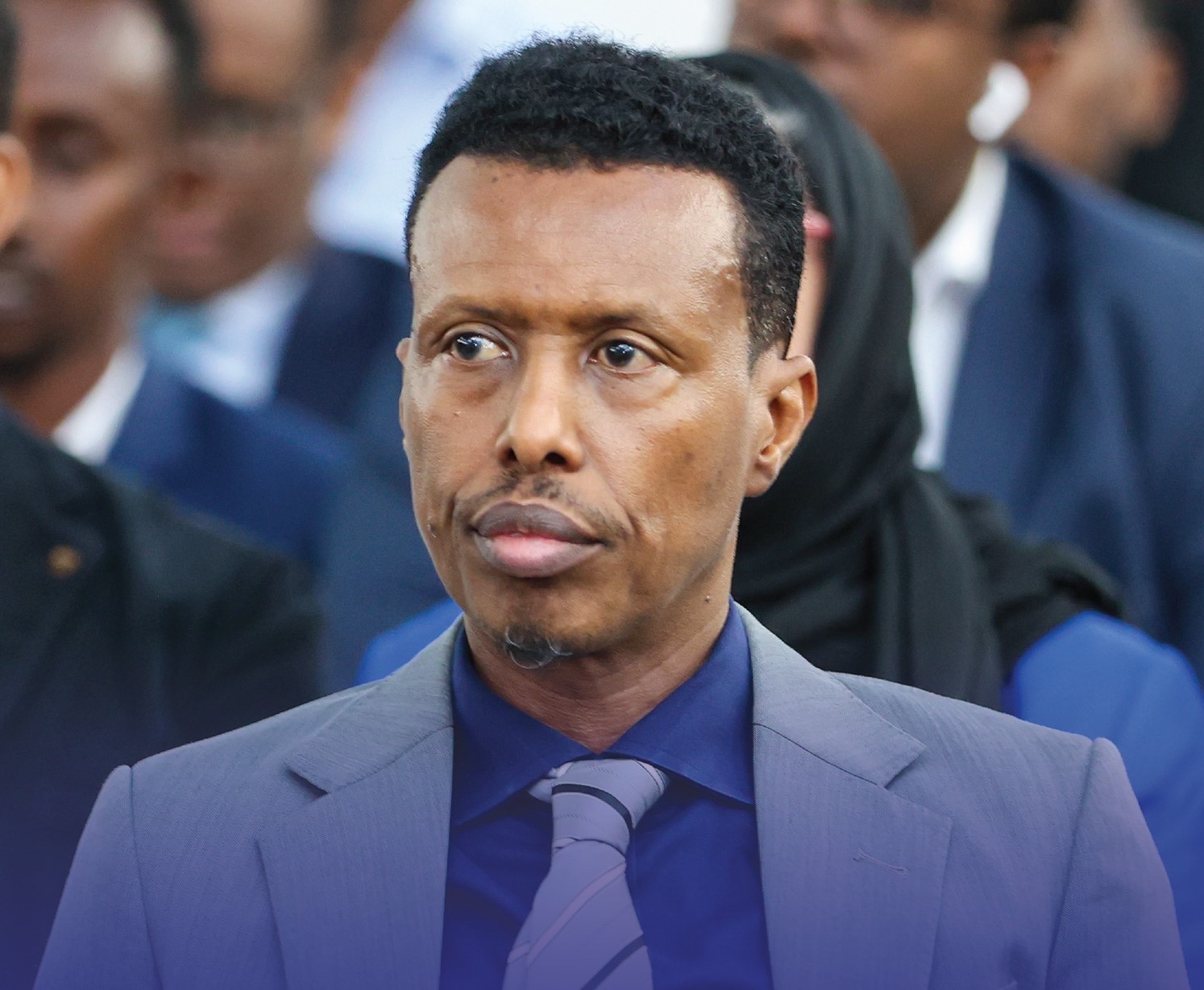
The post, shared on the advisor’s X (formerly Twitter) account, omitted any mention of a replacement force, leaving the people of Bakol concerned about a potential security vacuum. The residents feared that without a clear plan for replacing the Ethiopian troops, the region could be left vulnerable to insecurity and violence include Alshabab terrorists, as no alternative forces were stationed in the area.
The demonstrations quickly triggered political divisions in Mogadishu. On August 31, 2024, two conflicting press conferences were held in the capital. The first, involving 10 MPs, condemned the demonstrators, labelling them “traitors” for advocating the continued presence of Ethiopian forces. The second press conference, attended by 25 MPs, supported the demonstrators, calling on the Somalia Federal Government to address the people’s security concerns before dismissing their protests. The latter group of MPs emphasized that the fears of the Bakol residents were legitimate and needed immediate attention.
President Hassan Sheikh Mohamud was reportedly infuriated by the support shown to the demonstrators by the 25 MPs. In response, the president organized key politicians and traditional elders from his own clan, launching a widespread media campaign aimed at discrediting the MPs. The media barrage labelled the 25 MPs as “traitors” aligned with Ethiopia, a sensitive accusation in Somalia’s political climate. Some traditional elders and politicians, aligned with the president, even issued death threats against the MPs, accusing them of undermining national security by backing the demonstrators’ demands.
The Director General of the Ministry for Aviation, Bashir Moalim Ali, during a press conference with other federal officials allied to the president, made inflammatory remarks about the people of Southwest State.
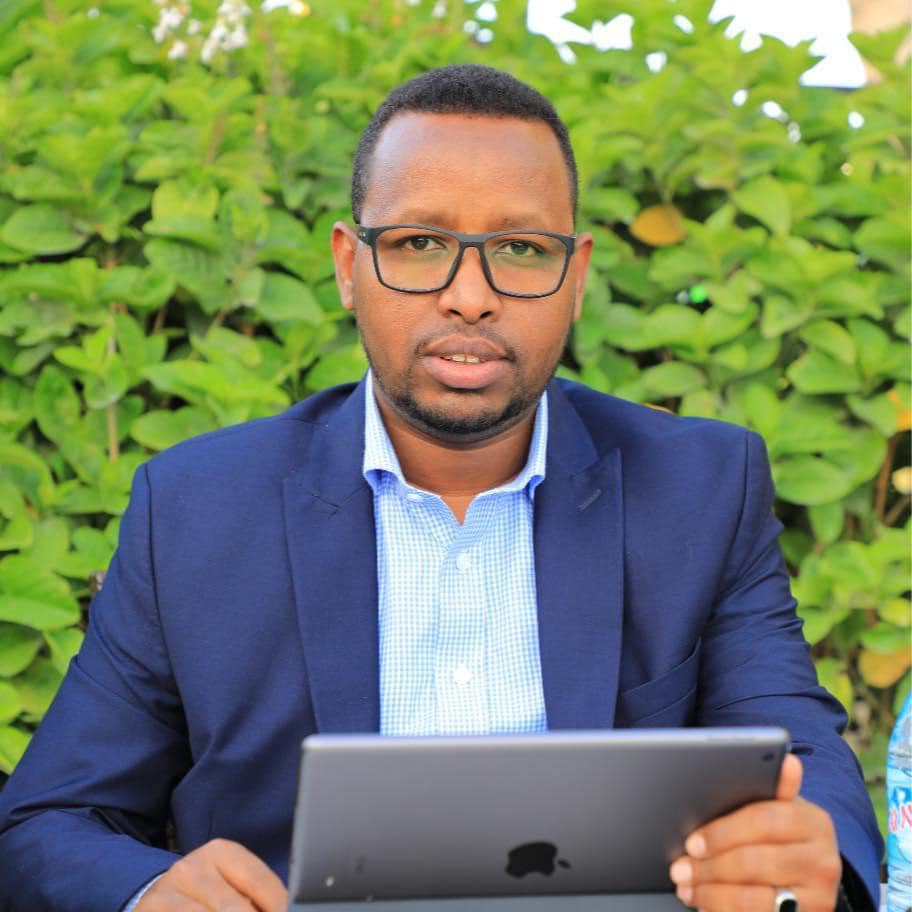
Ali insulted 25 MPs and the entire community, referring to them as “Not Somalis” and labelling them “illegitimate children of the Ethiopian forces.” Despite the severity of these derogatory comments, President Hassan Sheikh Mohamud has taken no action to reprimand Ali for his offensive and divisive statements. This lack of accountability has further fuelled ethnic tensions between the communities in Southwest and president’s clan as well as the federal government and the Southwest State.
These threats, coupled with the political hostility brewing in Mogadishu, prompted many of the 25 MPs to leave the capital for safety reasons. As they attempted to travel to Southwest State, particularly Baidoa, they were met with travel ban at the airport. The top brass within Somalia’s Airport Authority, under the influence of federal leadership, collaborated with security officials to block their travel. This decision was directly tied to the federal government’s aim to silence dissent and prevent MPs from supporting regions like Bakol, where security concerns contradicted the federal government leader’s agendas.
This politically charged environment, with threats of violence and weaponized travel restrictions, has exacerbated tensions between the federal government and regional leader of Southwest. It has also exposed how deeply political and ethnic affiliations are intertwined with security issues, as the federal government uses control over critical infrastructure, such as airports, to suppress opposition. The situation continues to reflect the fragility of Somalia’s governance and the challenges of maintaining regional stability in the face of political divisions.
Federal government leadership’s actions go against the Somalia constitution and several international legal frameworks that guarantee freedom of movement and restrict the abuse of aviation control. According to the United Nations Convention on Civil Aviation Security (UNCAS), aviation authorities are prohibited from weaponizing travel restrictions for political or ethnic purposes. The use of airspace control as a means to suppress or isolate political opponents is a direct violation of these international standards.
In addition, Somalia’s own Constitution, under Article 21, guarantees the freedom of movement for all citizens, including public officials and lawmakers. Article 34 of the Somali Constitution also affirms that all citizens have the right to participate in public affairs, which includes the ability of MPs to travel freely and perform their duties without interference.
Furthermore, under the International Covenant on Civil and Political Rights (ICCPR), to which Somalia is a signatory, the restriction of free movement without just cause is deemed unlawful and discriminatory. The actions taken by the Aviation Authority, under the influence of the federal government, are in clear violation of both national and international laws.
The politicization of Somalia’s aviation sector and the manipulation of airspace control for political objectives may have severe consequences. By restricting the movement of political opponents, the federal government is not only undermining the rule of law but also deepening the local tensions. If these practices continue, there is a real risk of exacerbating conflict and alienating entire communities, which could lead to unrest or even violence as people begin to feel increasingly oppressed.
When individuals feel that their fundamental rights are being trampled on, especially in a system where government resources are weaponized against them, it may drive communities to take matters into their own hands. This type of political suppression only serves to delegitimize the government, fuel resentment, and destabilize the fragile state-building efforts in Somalia.
Moreover, the interference in aviation control sends a chilling message to international partners and investors. A functioning and transparent aviation sector is critical to national development, and the current abuse of power undermines the credibility of Somalia’s institutions. This could deter international aid, investment, and cooperation—an outcome that Somalia can ill afford in its efforts to rebuild and strengthen its state.
The blatant misuse of power by the Somalia Federal Authority, under the direction of federal leaders, is a violation of legal rights and international standards. President Hassan Sheikh Mohamud’s alleged involvement in this power play, aimed at pressuring the Southwest State Administration, represents a dangerous blend of ethnic favouritism and political manipulation. Such actions not only fracture the nation but also erode trust in democratic processes and institutions.
The international community, including the United Nations and the African Union, must take note of these developments and pressure the Somali government to end these abuses. Aviation control cannot be used as a tool for political suppression, and the rights of all citizens, especially public officials, must be upheld.
The Federal Government of Somalia must ensure that airspace management remains impartial, and aviation authorities and the security officers must be held accountable for their actions. The country’s leadership needs to recognize that freedom of movement is a fundamental right, and any continued politicization of air travel risks destabilizing not only the Southwest State but the entire nation.
In conclusion, the current actions taken by the Somali government through its aviation authorities must be stopped immediately. Somalia’s constitution, along with international law, stands firm in protecting the rights of its citizens to move freely and engage in public service. If these rights are consistently violated, the long-term consequences could include not only civil unrest but the further erosion of the fragile peace that Somalia has been working to build for years. The federal government must act swiftly to restore trust and ensure that Somalia’s airspace is used for its intended purpose—facilitating safe, unbiased travel for all.
If you have comments contact newsdesk@qalin.net
